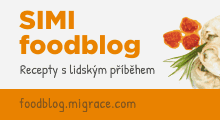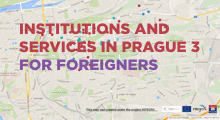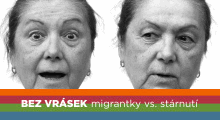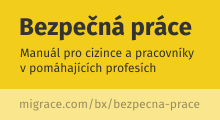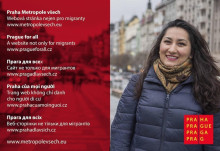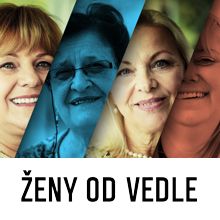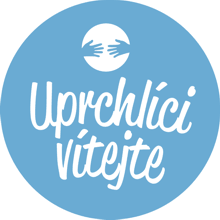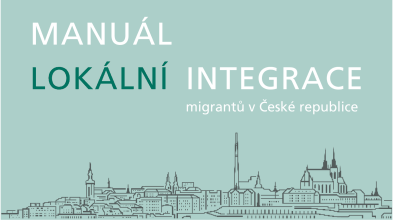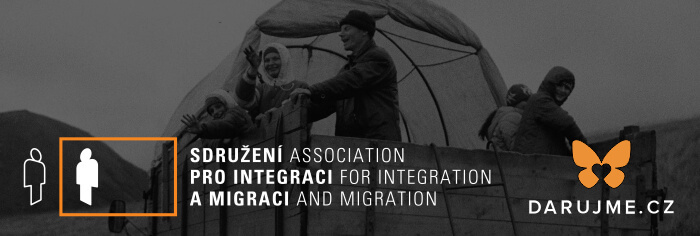Do you know who cleans your place?
In its new campaign, the Association for Integration and Migration urges employers to respect the rights of domestic female workers and encourages employers to treat these foreigners working in Czech households with respect. The campaign is also focused on informing these migrant women about their rights and obligations as a domestic worker.
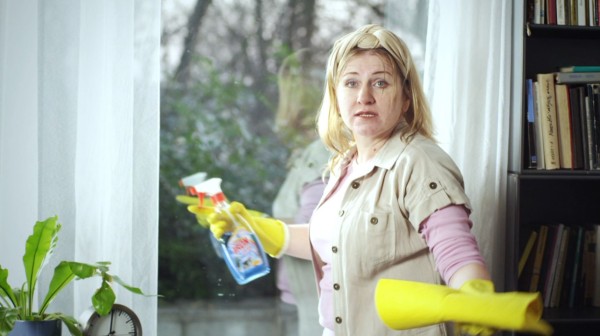
On International Women’s Day, the non-governmental organisation the Association for Integration and Migration is commencing an informative campaign in which it intends to both inform female foreigners working in Czech households about their rights and obligations connected to their job performance, as well as encourage interest of Czech families in these migrant workers who help them maintain their households.
Migrant women who are employed in Czech households perform different roles including the roles of cleaners, housekeepers or care persons. Domestic work represents a new segment of the labour market and a new phenomenon that has occurred within the last few years in the Czech Republic. No one has paid close attention to this fact. At the end of 2011, there were more than 26 thousand migrant women from third countries working legally in the Czech Republic. Upon their arrival to Czech Republic, the majority of these women immediately took up a position in Czech households. These women often have to endure inappropriate treatment while performing their jobs and often also have to confront different kinds of discrimination. In many cases, they are forced to work illegally as it is more profitable for their employers. In better cases, the most common problems are connected to low wages, lack of overtime payment, taxes from their employers and lack of holidays. In the worst cases, these female workers face physical violence, sexual harassment and maltreatment.
“Because of both fear of losing their job and unawareness how to deal with the situation, these migrant female workers often have to tolerate exploitation. Due to illegal work or illegal stay they are afraid of being expelled. Hence, we consider it is essential to inform interested parties about such events and find it crucial to respond to serious abuses of the rights of such employed migrant women. Offering counselling free of charge proves to be an effective instrument in strengthening the status of these women,” explains Magda Faltová, director of the Association of Integration and Migration.
Thus, this campaign is focused on informing these migrant domestic workers via leaflets and informational videos about their basic rights and obligations as domestic workers and providing contact details for the office of the organisation where these women can obtain advice. Kateřina Dederová, PR manager of the Association for Integration and Migration, adds: “These leaflets are available in Czech, English and Russian in the waiting rooms of labour offices, organizations working with migrants, civil advisory centres and areas with high and frequent presence of migrant women”. The informational video is intended to be broadcast on TVs at labour offices, on internet portals and through other kinds of media. We will be very grateful for any help in their distribution”.
The public can view further information about the campaign through an online video made by director Jan Látal in coproduction with DW Agency. The video demonstrates the inappropriate treatment of migrant domestic workers and stresses the personal stories of these women who have often had difficult and traumatic experiences. Housework is often undervalued due to the fact that it serves ‘only’ to maintain households and does not create any particular economic value. However, it is important to keep in mind that housework is a kind of employment or business and migrant female workers thus deserve the same rights and the same degree of dignity as we demand from our employers and business partners.
In the spirit of International Women’s Day, which is annually celebrated as a day of international solidarity for women’s coequality and justice, the Association for Integration and Migration opens public debate on the topic of equal opportunities of domestic workers.
The video is available on: http://www.youtube.com/watch?v=lvDn-Q_uNXE.
For more information about the campaign and practical information for migrant women and the public: www.migrace.com .
Contact details:
Kateřina Dederová, PR, dederova@refug.cz, 224 224 379
Eva Valentová, project coordinator, valentova@refug.cz, 224 224 379

